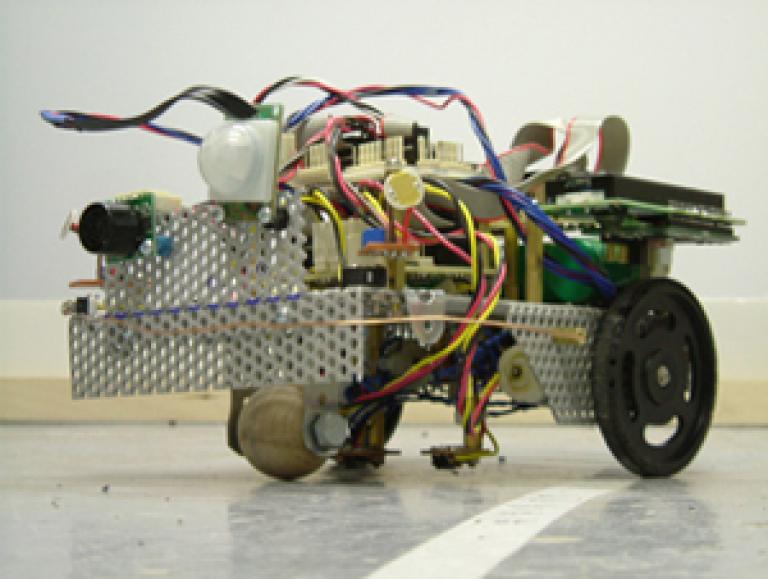This project addresses social issues concerning the commercial creation of artificial intelligence robots that attempt to fulfil human expectations and desires. Field Studies uses video works to create a façade of expectation in the viewer. The videos are idealistic, they depict the robots in a virtual manner where everything they do is harmonious, orderly and fulfills the desires of the artist by doing everything she wants them to do. The real robots in the exhibition do not embody these behaviours; they have their own intelligence and shortcomings quite apart from Field’s expectations of them and are nearly always out of sync with the video’s expectations. The robots instead have behaviours of their own and their lack of evolution towards the artist’s expectations creates a character that is unique.
The idea of evolution is explored in having three different classification of robots where each robot interacts with its similar class of robot in an ecosystem. Each class of robot has a different level of sophistication. The first carries the intelligence of a Protozoan Flagellate, a single cell organism. The second classification uses a nerve-net intelligence structure; it uses the senses to directly control the whole body’s reaction without any process of thought interpreting the experience. These robots are static and incapable of any form of evolution. This is the result of being created from conception to reality without having any way of reprogramming them to improve their behaviours. The last class of robots can evolve. They can be modified indefinitely to work in their environment as efficiently as possible by being able to remember their experiences and use logic to interpret their sensory data. With all this going for them, they still do not quite fulfil the grandeur of what they can do in their video. It then comes down to the question of how many times do these robots have to evolve before they work perfectly to the artist’s expectations.
The mainstream idea of a robot is a stereotype of offering immediate gratification and is designed to fulfil human expectations and desires. Yet the robot itself has many hardware limitations in what it can actually do; in working with these limitations, the robot evolves very slowly and when finished only fulfils the smallest shadow of the idealism we desire for them. Our imagination of what we want the robot to become fills in the rest of the details.


